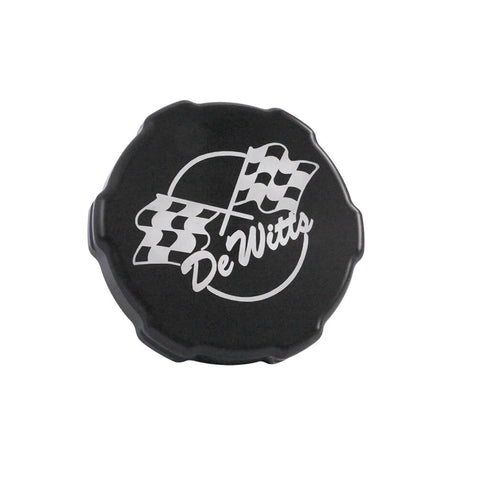What Radiator Cap Pressure Should I Use?
We are asked this question daily and most people misunderstand what the pressure cap does. The cap’s pressure rating has nothing to do with regulating your engine’s coolant temperature, nor will it make your engine run cooler. Depending upon the original application you will see original radiator caps rated for anywhere from 13 psi up to 18 psi. This is the cap’s relief point, at which the pressure exceeds the cap’s designated pressure rating and vents the pressure to atmosphere, either through a drain hose right to the ground (often seen in classic cars) or to a recovery/expansion tank. We highly recommend updating your vehicle to use an expansion tank of some sort if it currently just vents to the ground, such as our universal expansion tank available in several sizes to fit most any engine compartment. But before we go any further let’s discuss boiling points and what it means for your cooling system.
What Is the Boiling Point of Water?
Let’s take a pan of water and heat it to a boil. The water heats up and boils at 212 degrees Fahrenheit. Now let's take a pressure cooker and do the same thing. The water will expand and create pressure inside the cooker. The boiling point of the water increases three degrees for every 1 psi the pressure goes up. If the pressure goes up to 15 psi, then we have added 45 degrees to the water’s boiling point. We have now increased the boiling point to 257 degrees instead of 212 degrees.
What Does a Radiator Cap Do?
Now let’s talk the same pressure advantage but in an automotive application. A standard coolant mixture of 50 percent water and 50 percent ethylene glycol (such as our own DeWitts High Performance Coolant has a boiling point of 223 degrees. A cooling system using a 15 psi radiator cap will add 45 degrees to the boiling point for a final boiling point of 268 degrees. The real purpose of pressurizing your cooling system is to give the vehicle a higher operating zone in case of extreme conditions. For example, let’s say your classic car normally runs at 180-190 and boiling is not a concern. Then on a hot day the coolant temperature goes to 200-210. This is not a problem either, but then traffic stops, and you can’t move. Now the temperature starts to rise to 240 and without a pressurized system the coolant would boil and spew all over the place. The loss of coolant would eventually fill the radiator with air and the temperature would rise even higher. Remember, none of the above running temperatures have anything to do with the cap rating. They are simply conditions of the cooling systems capability, the ambient air temperature, and air flow. Pressurized or not, air flow through the radiator is critical to maintaining system temperatures. We prefer electric cooling fans but even with a mechanical fan you must ensure the fan is properly spaced within your fan shroud using a fan spacer.
Now if you add the 15 psi radiator cap to the same system, we have increased our boiling point to 268 degrees Fahrenheit as we stated previously. In our stopped traffic scenario at 240 degrees, we will be able to prevent system boiling. While no one likes to see a temperature that high on their dash gauge, with a properly functioning system 240 degrees is not harmful. So, you may be asking yourself why not just install a higher rated radiator cap at 18 or even 21 psi? While yes, this would raise the boiling point further, the extra pressure places a tremendous amount of strain on the rest of the cooling system. You must remember it isn’t just the cap we’re talking about here, but the complete system. Cooling hoses, your heater core, water pump gaskets/seals, and more all become stressed at these higher pressures, which is why we prefer and only sell radiator caps rated at 15 psi for our radiators.

Can You Overfill a Cooling System?
Often customers will report their system boiling over at temperatures of 220 degrees or lower, and as we outlined above, this isn’t possible. What is happening is the cooling system is simply overfilled. Coolant expands as it heats, and it has no place to go but exit the cooling system via the overflow hose to the ground or recovery tank and people confuse this action with an overheating system that is “boiling over.” After the coolant has exhausted to the ground or the recovery tank and the engine cools down, if you opt to refill the system this cycle of losing coolant and refilling will continue over and over. The simple solution is to stop adding coolant. Once the system pushes out the excess coolant it will naturally find the proper level. This is, again, where a recovery tank is a much better solution, as you can use this secondary storage area to monitor the coolant level and ensure the system is properly filled as it cycles.



